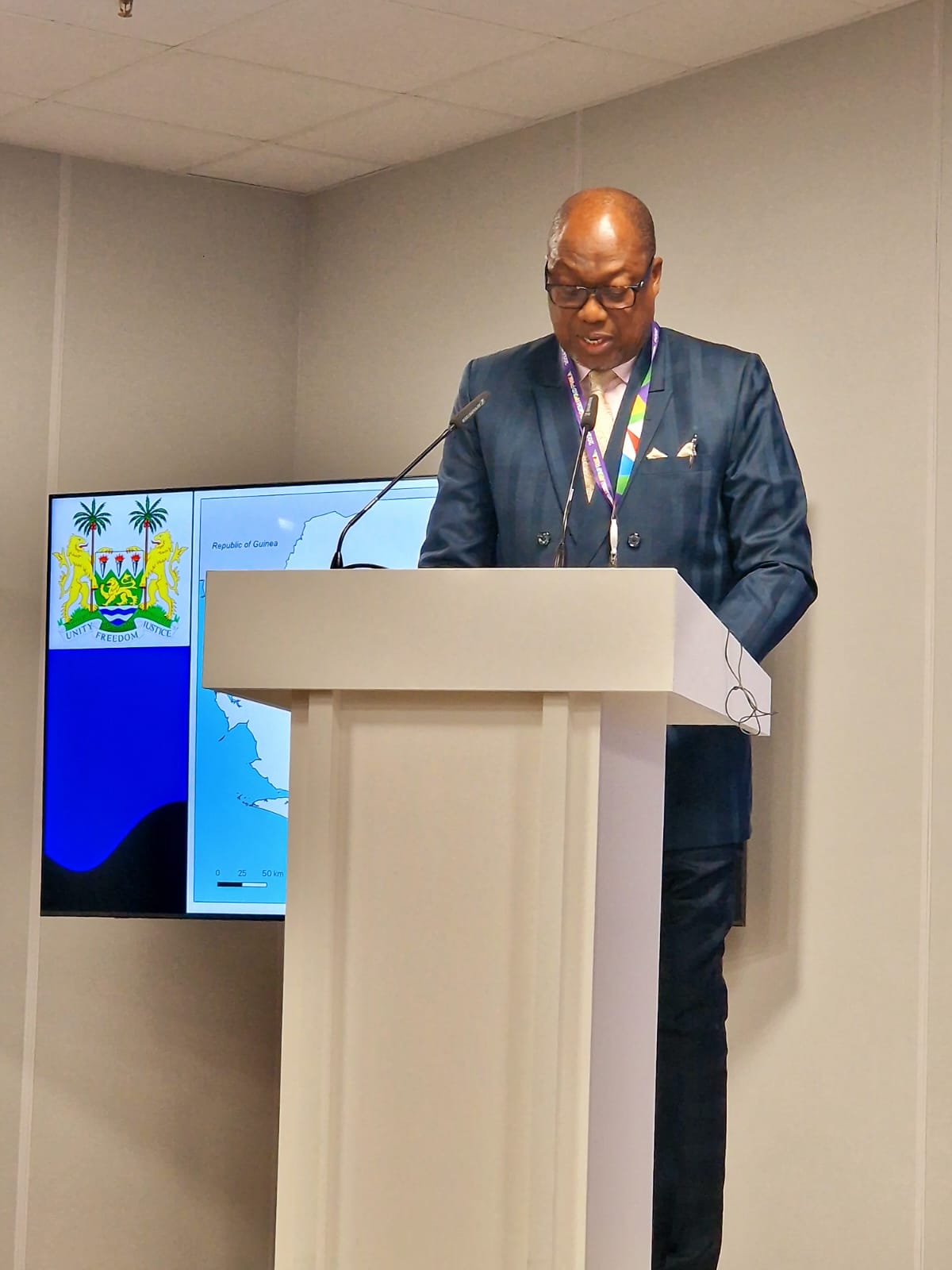By: Elizabeth A. Kaine, Editor
The Chairman of the Board of Directors of the National Minerals Agency (NMA), Alhaji Mustapha Turay, emphasized the critical mineral wealth of Sub-Saharan Africa as a unique opportunity for economic growth at the First Ministerial Conference of the Russia-Africa Partnership Forum in Sochi on November 10, 2024. He highlighted the increasing global demand for minerals essential to clean energy technology.
In his address, Turay shared the region’s rich mining history, which dates back to diamond mining in the 1930s, and underscored the vast reserves of critical minerals, including iron ore, gold, lithium, nickel, and rare earth elements. These resources are vital for emerging technologies in electric vehicles, solar energy, and battery production.
“With Sub-Saharan Africa estimated to hold about 30% of global proven critical mineral reserves, the region is well-positioned to become a key player in the energy transition,” he stated.
The International Energy Agency projects that the shift to clean energy will increase global demand for lithium tenfold and for nickel and cobalt by two- to threefold by 2050. Turay noted that Sub-Saharan Africa could capture over 10% of the estimated $16 trillion in revenues from key minerals such as copper, nickel, cobalt, and lithium over the next 25 years, potentially boosting the region’s GDP by 12% or more by 2050.
Turay outlined proactive measures, including the recent granting of exploration licenses to reputable companies for lithium and nickel, essential components of electric batteries. He advocated for value-added processing within Africa, arguing that raw minerals should not merely be exported. For instance, while raw bauxite sells for around $65 per ton, processed aluminum can command over $2,300 per ton, highlighting the need for local processing industries.
The Chairman urged a regional strategy to enhance Africa’s attractiveness for investment in mineral processing, leveraging the continent’s diverse critical mineral resources. With a growing population, urbanization, and rising demand for renewable energy, he believes Sub-Saharan Africa is primed to expand its mineral processing capacity, bolstered by initiatives like the African Continental Free Trade Area (AfCFTA).
“A regional approach to processing and infrastructure will reduce trade barriers, attract more investors, and create robust value chains,” Turay stated. He proposed the development of regional infrastructure, including a potential rail and port system jointly developed by Sierra Leone and Guinea, along with a centralized aluminum smelter for bauxite.
However, Turay cautioned that the region must learn from historical pitfalls to avoid the so-called “resource curse” that has affected many African nations. He called for reforms to promote transparency, efficient tax systems, and strong local financial markets. He also emphasized that the government is actively pursuing a comprehensive critical minerals strategy, informed by best practices from countries like Russia, to ensure sustainable and responsible resource management.
In closing, Turay extended an invitation to Russian investors to explore opportunities in the region’s mining sector. “Africa is open for business, and we welcome partners to help unlock the full potential of our mineral wealth for sustainable economic growth,” he concluded.






